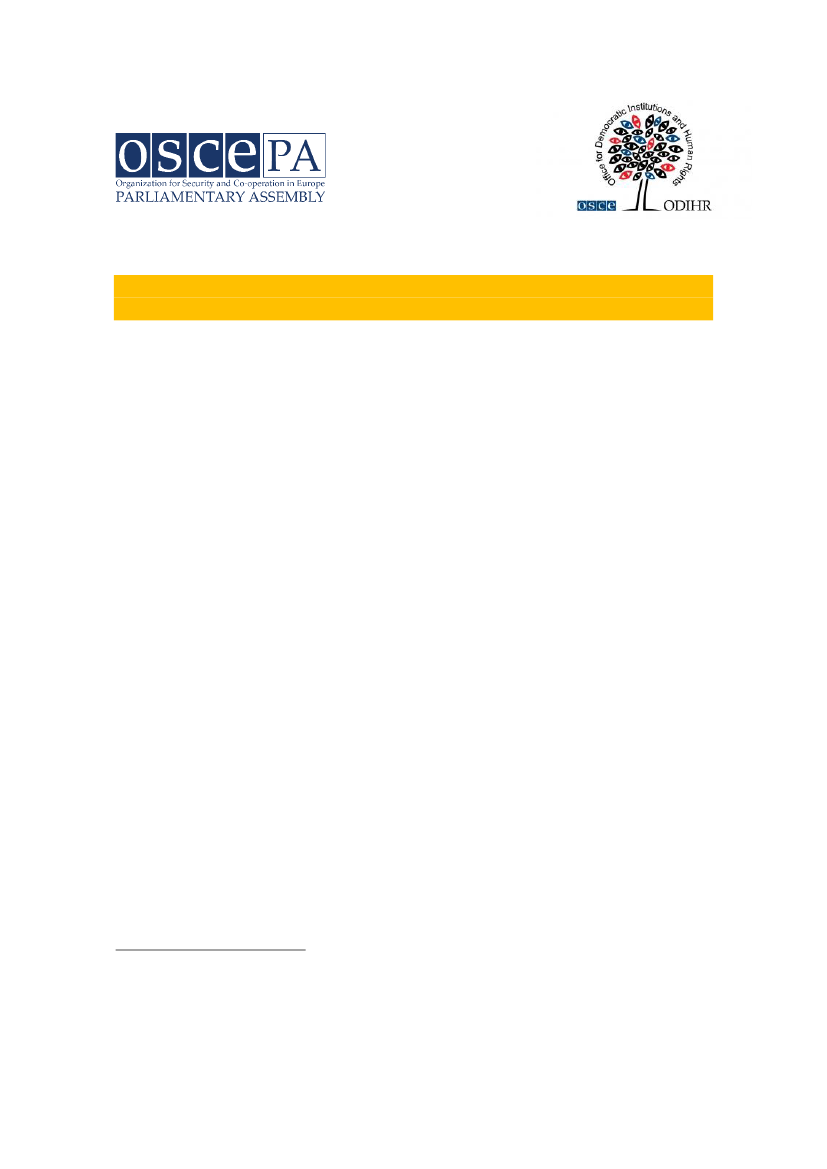
CONCEPT NOTE
INSTITUTIONALISING GENDER MAINSTREAMING IN PARLIAMENT:
Participatory Gender Audits and Gender Action Plans
Joint Web Dialogue event by the OSCE Office for Democratic Institutions and Human Rights
(OSCE/ODIHR) and the OSCE Parliamentary Assembly (OSCE PA)
Online // Tuesday, 24 January 2023, 10.00-12.00 CET
BACKGROUND
Modern societies have recognized that gender inequality — demonstrated across a range of
social, economic, cultural and political indicators — remains a fundamental impediment to
progress and prosperity. This long-standing recognition is evidenced in the 1991 OSCE
Moscow Document, which states:
“full and true equality between men and women is a
fundamental aspect of a just and democratic society based on the rule of law. [Participating
States] recognize that the full development of society and the welfare of all its members
require equal opportunity for full and equal participation of men and women.”
1
National parliaments of the OSCE region have a unique role to play in the gradual
transformation towards gender equality of our societies. National parliaments are well placed
to champion the objective of gender equality and promote gender mainstreaming, by
responding to the needs and interests of both men and women in their composition,
structures, operations, working methods, and day-to-day work. Parliaments are also
responsible for producing gender-responsive policy outcomes, through decision-making and
the adoption of documents within the competence of the parliaments, or indirectly through
gender-sensitive oversight of the performance of the executive.
In the ensuing decade, the concept of ‘gender-sensitive parliaments’ (GSP) has become the
clearest expression of parliaments’ responsibility to promote and achieve gender equality.
International parliamentary organizations such as the Inter-Parliamentary Union (IPU) have
been at the forefront of these efforts, having produced an evidence base as well as political
texts that encourage further action in support of gender sensitivity around the world.
2
The
1
2
“Document of the Moscow Meeting of the Conference on the Human Dimension of the CSCE”, 3 October
1991. Available at https://www.osce.org/odihr/elections/14310.
IPU,
Gender-Sensitive Parliaments: A Global Review of Good Practice
(Geneva: IPU, 2011); CPA,
Gender
Sensitising Parliaments Guidelines: Standards and a Checklist for Parliamentary Change
(London: CPA,
2020).